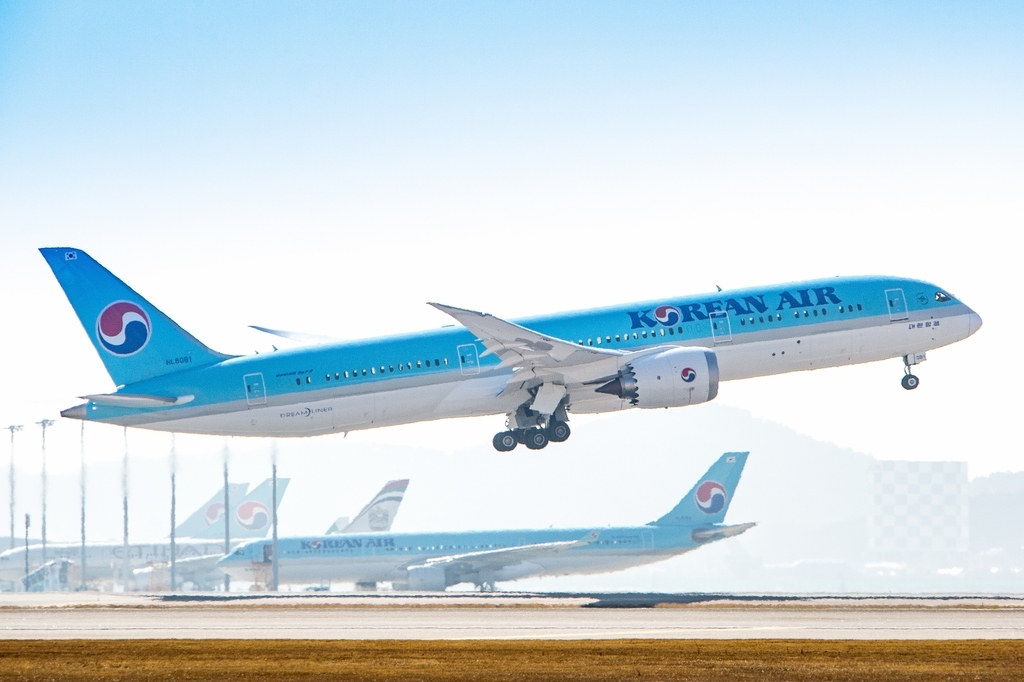 |
This file photo provided by Korean Air shows a B787-9 passenger jet taking off from Incheon International Airport, west of Seoul. (Korean Air) |
Korean Air Lines Co. said Wednesday it has received "unconditional" regulatory approval from Singapore for its integration with Asiana Airlines Inc. in a move that could speed up its process to acquire the smaller domestic rival.
In January last year, Korean Air submitted documents to antitrust regulators of 14 countries for the review of its business combination with Asiana.
As of Wednesday, the company received approvals from seven countries -- Singapore, Vietnam, Thailand, Turkey, Taiwan, Malaysia and the Philippines -- for the integration while awaiting the go-ahead from seven countries -- South Korea, China, Japan, Britain, Australia, the European Union and the United States.
The Korea Fair Trade Commission is scheduled to hold a meeting later in the day to review the case. The antitrust regulator is widely expected to approve the integration of the country's two biggest carriers on the condition that the carriers return some of their redundant airport slots and transportation rights to alleviate monopoly concerns.
Korean Air, currently the world's 18th-largest airline by fleet, will become Asiana's biggest shareholder with a 63.9 percent stake if the acquisition is completed.
In November 2020, Korean Air signed a deal to acquire the controlling stake in Asiana in a deal valued at 1.8 trillion won ($1.5 billion) that would create the world's 10th-biggest airline by fleet.
The nation's two full-service carriers account for a combined 40 percent of passenger and cargo slots at Incheon International Airport, South Korea's main gateway, below the level that constitutes a monopoly.
Korean Air said it aims to launch a merged entity with Asiana in 2024 after completing a takeover process by next year, vowing to streamline their routes and reduce maintenance costs.
The two airlines have suspended most of their flights on international routes since March 2020, as countries have strengthened their entry restrictions to stem the spread of the COVID-19 pandemic. (Yonhap)



![[AtoZ of Korean mind] Ever noticed some Koreans talk to themselves?](http://res.heraldm.com/phpwas/restmb_idxmake.php?idx=644&simg=/content/image/2024/11/03/20241103050186_0.jpg)
![[Breaking] North Korea fires short-range ballistic missiles: JCS](http://res.heraldm.com/phpwas/restmb_idxmake.php?idx=644&simg=/content/image/2024/11/05/20241105050038_0.jpg)



